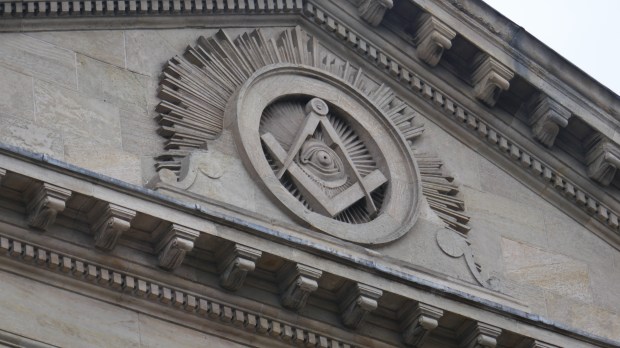“Active membership in Freemasonry by a member of the faithful is forbidden,” reiterates the Dicastery for the Doctrine of the Faith (DDF) in response to a question posed by a Filipino bishop. A “note for the audience with the Holy Father” — signed by Pope Francis and DDF prefect Cardinal Victor Manuel Fernández during their meeting on November 13, 2023 — recalls the firm prohibition laid down by Cardinal Joseph Ratzinger in his 1983 Declaration.
This brief, one-page document, which was quickly made public, was a response to a question posed by Bishop Julito Cortes of Dumaguete. His diocese in the southern Philippines is facing a “continuous rise in the number of faithful enrolled with Freemasonry.”
Growth of Freemasonry in the Philippines
The DDF has opted for a response extended to the entire Philippine episcopate, taking into account both the doctrinal and pastoral implications of this theme. The Asian archipelago is strongly permeated by a popular Catholicism. However, it is also affected by secularization linked to media culture, by the proliferation of sects and Islam, and by the development of Freemasonry.
“Freemasonry membership is very significant in the Philippines; it involves not only those formally enrolled in Masonic lodges but, more generally, a large number of sympathizers and associates who are personally convinced that there is no opposition between membership in the Catholic Church and in Masonic lodges,” the document states.
The DDF therefore recalls that “on the doctrinal level […] active membership in Freemasonry by a member of the faithful is forbidden because of the irreconcilability between Catholic doctrine and Freemasonry.” The text here refers to a declaration issued by the Congregation for the Doctrine of the Faith in 1983 and to the guidelines published by the Catholic Bishops’ Conference of the Philippines in 2003.
“Grave sin”
The 1983 Declaration signed by Cardinal Ratzinger stated that Catholics enrolled in Masonic lodges are “in a state of grave sin.” It reaffirmed that the prohibition was still in place, although the Code of Canon Law published the same year had omitted the explicit condemnation of Freemasonry and excommunication present in the previous edition of the Code, dating from 1917.
“Those who are formally and knowingly enrolled in Masonic lodges and have embraced Masonic principles fall under the provisions in the above-mentioned Declaration,” says the DDF. “These measures also apply to any clerics enrolled in Freemasonry,” it adds.
“On the pastoral level, the Dicastery proposes that the Philippine bishops conduct catechesis accessible to the people in all parishes regarding the reasons for the irreconcilability between the Catholic faith and Freemasonry,” the note says. The Philippine episcopate is also invited to evaluate the advisability of a possible public statement on this theme.
Continuity with past declarations
Argentinian Cardinal Victor Manuel Fernández is following in the footsteps of Cardinal Joseph Ratzinger, who was prefect of the then “Congregation” for the Doctrine of the Faith for almost a quarter of a century, from 1981 to 2005, before being elected to the See of Peter as Benedict XVI.
In recent years, there have been a number of scandals linked to certain clerics’ ties with Freemasonry. In France, in May 2013, the then-Bishop of Annecy, Yves Boivineau, dismissed the parish priest of Megève, Fr. Pascal Vesin, because of his membership in the Grand Orient de France. A few weeks later, he traveled to Rome to request an audience with Pope Francis, in the hope of being reinstated as a diocesan clergyman, but to no avail. Returning to civilian life, he later became a bank clerk.



